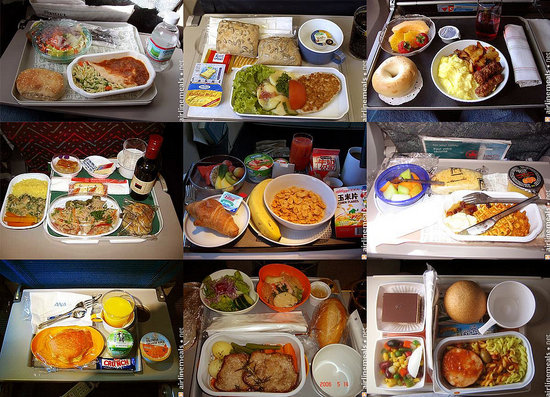From Today’s Telegraph, something along the lines of “Worthwhile Canadian Initiative”:
Tag: Travel Commentary
Taking a break
I am leaving tomorrow with my boys (ages 15 and 11) and my dad for a 2 week trip to Sequoia, Kings Canyon and Yosemite National Parks and then some time in San Francisco. Planning to go fairly far off the grid….my blogging will pick back up around August 1 (though I have been slack this week in as well). If you have great trip suggestions, find me on twitter @donaldhtaylorjr
Also, I will violate my hiatus and blog from Half Dome via my droid if the Republicans actually come up with a replace bill for the Affordable Care Act…..so, see you in August.
Eating Some Jobs Along With Your Eggs and Bacon
 Due to a pulled muscle and some cuts from a mishap, my right hand has been a bandaged, painful and clumsy paw this week. My injury did however give me some perspective on the downsides of hotel breakfast buffets. This was my early morning colloquy with a harried hostess at a hotel restaurant:
Due to a pulled muscle and some cuts from a mishap, my right hand has been a bandaged, painful and clumsy paw this week. My injury did however give me some perspective on the downsides of hotel breakfast buffets. This was my early morning colloquy with a harried hostess at a hotel restaurant:
“We have a buffet”, she announced, in a bright tone that suggested that I had just won something.
“I know, but I would like to order something instead”, I responded.
“You don’t want the buffet?”
“No, thanks. Could you just bring me a vegetarian omelette and brown toast?”
“There are eggs and toast on the buffet” she said, almost pleading.
I then explained that I wasn’t trying to be difficult, but that I couldn’t use my right hand very well and was afraid that I would drop a plate full of hot food. She was very nice about it and put in my order.
The wait was a long one, and I don’t yet have the dexterity to easily read a newspaper, so I just watched people eat. It was quite a sight, as sleepy travelers piled their plates high, some doing so multiple times. This is not surprising: When given a wide range of choices, such as a well-stocked buffet, people tend to overeat. This is even more common when people are sleep-deprived or jet lagged, which can disrupt the functioning of the hormones that signal when to start and stop eating.
The other thing everyone was eating was jobs. Two staff members rocketed this way and that, pouring coffee and getting the checks for all the customers in the restaurant ($15 a crack for the buffet). No wonder they pushed the buffet: They don’t really have time to wait on anyone for more than a few moments.
If fewer frequent travelers meekly accepted the hotel buffet, hotels would have to hire more wait staff, which would lower unemployment. Overeating by travelers would be less common, which would benefit their health. That’s enough for me to resist the buffet from here on out and encourage others to do likewise, even if I don’t take the time to envision how much cooked but uneaten food is dumped into the trash in the nation’s hotels at the end of every breakfast shift. If you are willing to join the movement, please tip generously. Even though table orders typically cost slightly more than the buffet (mine was an extra two bucks), a buffet opt-out strategy will make things harder on wait staff by raising their workload in the short term until management wises up and hires more employees.
Rediscovering Lost Treasures
I have always been fascinated by stories about how a long forgotten stunning geological formation or breathtaking canyon or intriguing system of caverns has been rediscovered, such as this one about a “lost” 400 foot waterfall. How extravagant we are forgetting beautiful things; someday they may be scarce.
We have one such treasure near my house, which is the Stanford family’s old cactus garden. The cacti are in bloom and I snapped these photos with my cell phone just now. The place reminds me of nothing so much as a mysterious forest from a Dr. Seuss book. 
It’s an amazing place, yet somehow its existence was forgotten for decades. In the 1880s, it was created to be adjacent to a grand family house that was never built. Maintenance of it stopped during World War II. It was gradually overgrown by other plants and then faded from collective memory. Fortunately it was rediscovered and is now being restored. It’s always open and free of charge, and very much worth a visit if you live in or are visiting the San Francisco Bay Area.
Travel Broadens the Mind
I have been working with the London Metropolitan Police to reduce alcohol-involved violence. After I gave a talk with Deputy Mayor Malthouse at the London Drug and Alcohol Policy Forum, the organizers very thoughtfully gave me this gift from the archives. These truncheons were carried by bobbies from the Victorian Era until about 15 years ago, when they were replaced with folding batons.
Beyond the fact that it will be useful at the next meeting of the faculty senate, I appreciate the truncheon as a reminder of what travel can teach us. After the forum, a friendly former beat cop took me around some of his old haunts and then for a pint. I asked him if he had ever carried a gun. Bugging his eyes out for effect he said “A gun? Why, they’re dangerous.” I think many Americans would be shocked to realize that in such a large city, the police keep order while rarely using firearms. When I learned this myself as a visiting college student I realized with sadness how much I accepted as a fact of life that all big cities are violent (Detroit was the first big city I knew well) and that police needed guns to fight crime.
Japan, now in such a terrible state, provided me a similar lesson 25 years ago Continue reading “Travel Broadens the Mind”
The Amazing RBC®©™ New Year’s Diet!
Airline meals.
Losing weight is one of the top New Year’s resolutions - justifiably so. 60% of Australians plan to lose weight (and that was before their cricket team was crushed by England in the Ashes series, gloat gloat). Eating less and exercising more is slow and boring: hence the appetite (sic) for miracle diets.
Let me add one. It’s expensive, inconvenient, and I have no evidence for it: in this market, these are features not bugs. Here we go: airline meals. Just find a trade supplier at your nearest hub airport, and talk them into sending you a daily supply. Air France or Royal Thai business class if you can get them.
Airline meals are small. The specifications are set by the airlines, and they are not telling, but the calorie count is obviously low. Passengers don’t complain. The airline catering managers are presumably trying to see how little food they can get away with, and it isn’t much. How do they get away with it? Partly because in pure sedentary conditions, we are satiated with far less than we are in the habit of eating. Partly because the meal-let is presented in three tiny courses: salad, main course, dessert, often cheese as well. So it feels like a “proper meal” not a snack.
The scheme seems to work for aircrew. Cabin staff are quite active physically, but flight crew are as sedentary as passengers, and you don’t see many fatties among them. (Leave aside for the moment the regular and draconian medicals.)
I see no reason why the scheme shouldn’t work at home. To the very limited extent diets are effective, they work by a combination of displacing seriously bad-for-you stuff, and psychological trickery including placebo effects. So all diets fail for most, and work for a few. Whatever does it for you.
Matt Yglesias has lost weight - his sensible tips here. I do quibble at his True Grit advice to drink hard liquor instead of beer. Surely the calorie content of booze is all in the ethanol, unless you go for frightful girly stuff with lots of free sugar? And for a given ethanol intake, the more fluid the better. Basically, reduce the ethanol.
Another idea worth trying is Ian Ayres’ prior-commitment scheme. You make a bet with yourself, and pay a real cost if you backslide.
PS: The real airline meal I describe is a vanishing thing. Budget airlines in Europe sell you food on board: fair enough, except that the selection is dire. Instant soup if you are lucky.
I came across the best solution once when flying from Frankfurt to West Berlin in the old days. Legally, it was an international flight - four-power agreement and all that -, so Lufthansa were or felt obliged to offer food for the 45-minute hop. On the other hand, Bonn’s political line was that West Berlin was an integral part of the Bundesrepublik. The political triangulation resulted in a self-service sandwich buffet in the boarding lounge: pack your own brown bag. Fine. Why isn’t this done more? The cost savings would be so enormous that the airlines could offer first-rate ingredients - truffle pâté, smoked trout, fresh strawberries - and still come out well ahead.
Are Voluntary Hospitality and Customer Service in Conflict?
American travelers in the Arab world are often surprised by the lack of a customer service mentality in the private sector. The connecting airplane in Tripoli isn’t at the gate, and rather than giving an explanation, the staff all leave the area so as to avoid dealing with irate customers. The plumber in Cairo shows up 4 hours later than the appointed time, with no apology, looks for five seconds at the leaky pipe and announces that the wrench he needs is at home and he will be back next week if he can. The cheery merchant in the Damascus souk happily pawns off a 10 year old piece of junk as a treasure from the 5th dynasty of Iscamyoo. And so on.
Yet if I were lost and alone and hungry and tired, I don’t know if there is any place on earth that I would rather be, because the Arab World is a place where I could reasonably expect a stranger to recognize my plight, take me into his home for dinner with his family, let me explain my problem, and then call his cousin Ahmed to give me a ride to my hotel on his motorcycle. A Canadian friend of mine who has traveled extensively in Iran described to me a similar hospitality ethos in Persian culture (Haven’t been): Iran is a place where if you walk up to a street demonstrator who is holding up a sign reading “death to the west” and ask for directions to a particular restaurant, you may well get the response “Oh, that place isn’t very good. And anyway, I want you to meet my family and have a proper Iranian dinner. I’ll be done here in a sec, as soon as the cameras leave — do you mind if we walk, it’s only a few blocks, but I can get us a ride, if you are tired.” Continue reading “Are Voluntary Hospitality and Customer Service in Conflict?”
TSAWTD, chapter umptyump
One of my dreams is to meet the nitwit who thought a good way to load an airplane through a door at the front is front seats first. If things go well, it will be on an airplane, and I will have a heavy carry-on with sharp corners, which I will drop on his toes. Indeed, I will be so distracted apologizing while I pick it up, I will probably drop it on his other foot.
American Airlines plans to charge extra for the first few rows and continue to allow them to board first, with the extra carry-on junk their fees to check bags has motivated. Yet again we see why the civil aviation industry has not made a penny of net profit since the Wright Brothers; has any other such wonderful technology ever been in the hands of such nincompoops?
“Ya think?” dep’t
NYT headline:
“Disclosures on Palin Raise Questions on Vetting Process”
NYT headline:
Disclosures on Palin Raise Questions on Vetting Process
Isn’t that right up there with “Man’s death raises questions about his claim to be immortal”?
A postcard from Arbil
Arbil for tourists: don’t rush
The old walled city is not really amazing but I did get to meet a few interesting characters.
Family anecdotes are rarely of wider interest, but an eyewitness report from a real live tourist in Iraqi Kurdistan is out of the ordinary. The laid-back Lonely Planet guidebooks, which give advice on trekking on Tajikistan, avoiding warlords, jihadists, and opium growers, are short on solo travel to Iraq:
You would have to be mad.
My imprudent son has done it, and his account on his pseudonymous travel blog is here.
The bottom line is that Arbil is an unsafe and lifeless dump by the standards of the places “Arabin” has spent the last six months in: of Urumqi, Osh, Khiva, and Batumi. Independently, we know Kurdistan has a unusual degree of political freedom, against which it is exceptionally corrupt. By itself, we would see it as just another of the flyblown Stans. It is only a beacon of order and civility by the crazed standards of the horror into which we - the USA and its British accomplice - have sunk the rest of Iraq.

